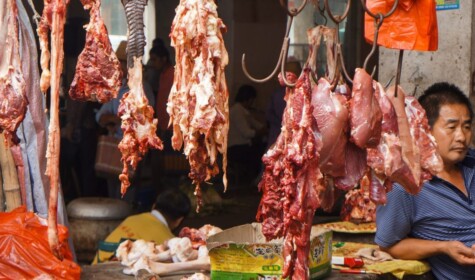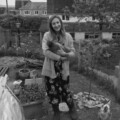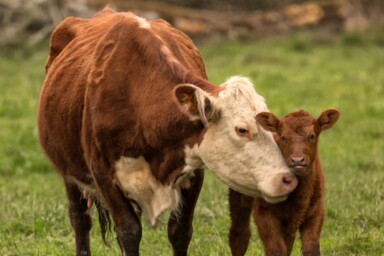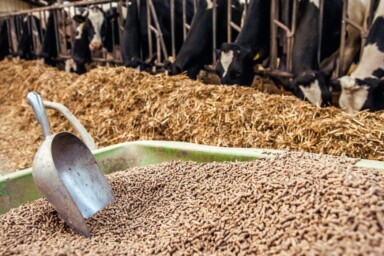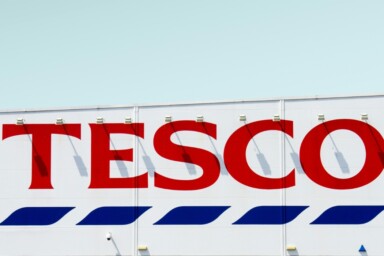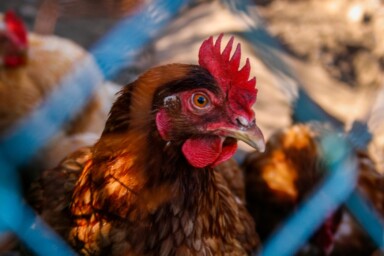We need to protect animal welfare to help prevent another global tragedy like the Covid-19 pandemic from occurring. In light of the current crisis, Lizzie Rowe reflects on the link between animal health and our own health, which makes animal welfare a priority, not a luxury, in our food system.
I’ve always felt an intense affinity with nature, and fauna in particular. I feel so at home in the company of non-human animals that I often think I was born the wrong species. The main reason I have come to terms with being human is that it enables me to be a voice for animals – to speak up for them in a human-dominated world. It’s their home too, after all.
So, when the news first broke about a novel virus infecting people in a city in China, it was my natural inclination to pay attention to the animal welfare issue behind the outbreak.
Perhaps it seems insensitive to give any focus to animals at a time when the human race is battling such a disaster; as I write, over 24,000 people have died from the virus we now call Covid-19. To this I give two answers: firstly, I don’t believe that there is some kind of quota on compassion, that because you care about animals, you have less concern for people. I care deeply about my fellow humans, and my heart goes out to all those affected by the pandemic, especially all those who have lost loved ones. This is a tragedy on a global scale. Secondly, and crucially, I believe that the origin of the outbreak highlights how intrinsically interlinked we are with the natural world, that our own health and wellbeing are reliant on the health and wellbeing of other animals – both wild and domestic. We have important lessons to learn from this catastrophe, and our very survival depends on taking heed of them.
Covid-19 is believed to have first infected humans at a ‘wet’ market (that sells meat and other fresh produce as opposed to ‘dry’ goods such as textiles) in the city of Wuhan, China. This particular market was known to sell live and slaughtered wild animals for human consumption, including wolf pups, golden cicadas, scorpions, bamboo rats, squirrels, foxes, civets, porcupines, salamanders, turtles and crocodiles. Genetic analysis of Covid-19 has revealed that it most resembles a type of coronavirus found in bats and pangolins, which makes it likely that the virus jumped from animals sold at the market to humans. It is not the first time this has happened, the most recent example being the SARS (Severe Acute Respiratory Syndrome) outbreak in China in 2003 – again caused by a coronavirus, again stemming from eating wild animals (likely bats) sold at a market.
The wildlife trade threatens the survival of species and the functioning of ecosystems, making it a major conservation issue. But it is the animal welfare issue I want to concentrate on here. These wildlife markets cause a great deal of suffering to animals. As Peter Li, Professor of East Asian politics at the University of Houston-Downtown and a China policy specialist at the Humane Society International, explains, animals are kept in dirty conditions, are thirsty and often dying, may have missing limbs or open wounds from their capture and transport, and tend not to be handled gently by traders. I’ve seen footage of such a market and wish I hadn’t; it makes for heart-breaking viewing. Watching the animals’ treatment makes me lose a little faith in humanity.
I do not say this to demonise the people involved in these markets. This reflection is absolutely not about throwing stones. My grief at how we treat other species isn’t confined to a particular country or practice. I’ve seen footage of some British farms that break my heart; every time I rehome an ex-caged hen that has been plucked bald and often wounded by her trapped, frustrated cage-mates, I also lose a little faith in humanity. Our infliction of cruelty and suffering on fellow sentient creatures is a worldwide human attribute.
I also understand the cultural sensitivity around the issue of wildlife markets. And my view may be naïve and over simplistic, for which I apologise, but it is this: I don’t think that being deep-rooted in tradition and culture excuses any practice, anywhere in the world, that is damaging to animals, to the planet or to fellow humans.
Of course, sometimes eating wild animals comes down to subsistence, which is often the case with bush meat in Africa. It’s easy for people like me to focus so much on animal welfare when I don’t have my own survival to worry about; others do not have that luxury. However, evidence suggests that in China at least, consumption of wild meat has moved away from subsistence and is now related to displays of wealth and status. According to Professor Diana Bell from the University of East Anglia’s School of Biological Sciences, most wild animal meat is no longer cheap, costing more than meat from livestock. Furthermore, the majority of Chinese citizens are rejecting the practice: even back in 2014, over half of respondents to a nationwide survey said wild animals shouldn’t be eaten. Since the outbreak of Covid-19, there has been an outpouring of Chinese citizens denouncing the practice. In a monumental move, on 24 February, the Chinese government started the process of amending the country’s Wildlife Protection Law to permanently ban the trade and consumption of wildlife.
It has taken a global pandemic to finally accept that wildlife markets are not only detrimental to animal welfare, but to human welfare too. This is because our health (a vital aspect of welfare) is intrinsically linked with animal health – something recognised as the ‘One Health’ approach that has been gaining momentum for the past decade. Unhealthy animals can make humans unhealthy when they come into contact, and this contact is unavoidable when we use animals for food, be they wild or domestic. But health isn’t the only aspect of welfare; it also includes emotional wellbeing. And this, too, is interlinked between humans and animals, something increasingly recognised under the more recent ‘One Welfare’ movement. Distress is a negative emotional state caused by severe and/or prolonged stress. When an animal is under severe or prolonged stress, its immune system is supressed. It may be harbouring a virus that has been kept in check by its immune system, but under stress the virus is unleashed. As you can imagine, the animals in these wildlife markets are severely distressed. In addition, they are packed tightly together, with cages stacked on top of each other, enabling a virus unleashed in any one of these animals to spread like wildfire to others, creating what Christian Walzer, Chief Global Veterinarian at the Wildlife Conservation Society, sums up as ‘a cauldron of contagion’. Professor Andrew Cunningham of the Zoological Society of London echoes this point, stating, ‘the animals have been transported over large distances and are crammed together into cages. They are stressed and immunosuppressed and excreting whatever pathogens they have in them’ creating ‘an ideal mixing bowl for [disease] emergence.’
But it’s not just wildlife markets that are the problem in this respect; the same lessons apply to domestic livestock farming. Livestock under stress will also have a weakened immune system, leaving them susceptible to disease, which can pose a health risk to us – for example, infection by Campylobacter and Salmonella bacteria which can spread to humans and cause food poisoning. And the swine flu virus, originating in domestic pigs and spreading to humans, was the cause of another global pandemic in 2009.
There are many causes of stress, and therefore distress, in livestock farming; for example, transportation, poor handling, impoverished environments and confinement preventing animals from performing natural behaviours, seen in intensive farming practices or ‘factory farming’. These factors can lead to poor welfare and so the emergence of diseases that endanger human health (see for instance this report on chicken welfare and Campylobacter infection). High stocking densities seen in intensive practices exacerbate the problem – overcrowding of animals is a cause of stress in itself, but also allows diseases to rapidly spread, like those cages stacked on top of each other at the wildlife markets.
And there’s another threat to our health that continues to lurk: antibiotic resistance in disease-causing bacteria, which is in part fuelled by the over-use and mis-use of antibiotics in intensive farming, including antibiotics that are classed as ‘critically important’ for curing illnesses in humans. If our antibiotics stop working to treat human illnesses, the consequences for our health and our survival do not even bear thinking about.
The reason antibiotics are overused in intensive farming practices is to treat the symptoms, not the causes, of poor welfare. As the Alliance to Save Our Antibiotics (of which the Sustainable Food Trust is a member) explains, ‘In the EU, farmers may routinely and preventatively dose groups of animals with important antibiotics, even when no disease has been diagnosed in any of the livestock. This is particularly common in the UK pig and poultry industries, where animals are often kept in overcrowded and stressful conditions. The routine ‘mass-medication’ of animals enables them to stave off diseases in conditions which are often “disease-inducing”.’
In contrast, higher welfare farming systems, including organic, do not rely on antibiotics – they are only given if an animal is ill and needs treatment. These systems show that animals can be kept healthy because they are looked after well and given the things they need (like space and enrichment) to ensure their wellbeing.
We need farming systems that improve animal welfare. Protecting the welfare of animals we use for food is not an extravagance – a bonus that would be nice to have, in an ideal world. It is vital for our own wellbeing. We only need to look at the state of the world around us right now to remind us of that. We must learn what we can from this catastrophe. If we can heed these lessons, and implement them to secure a future where we are happy and healthy, and our food animals are happy and healthy, then I see that as a silver lining to the incredibly dark cloud that currently hangs over us.
